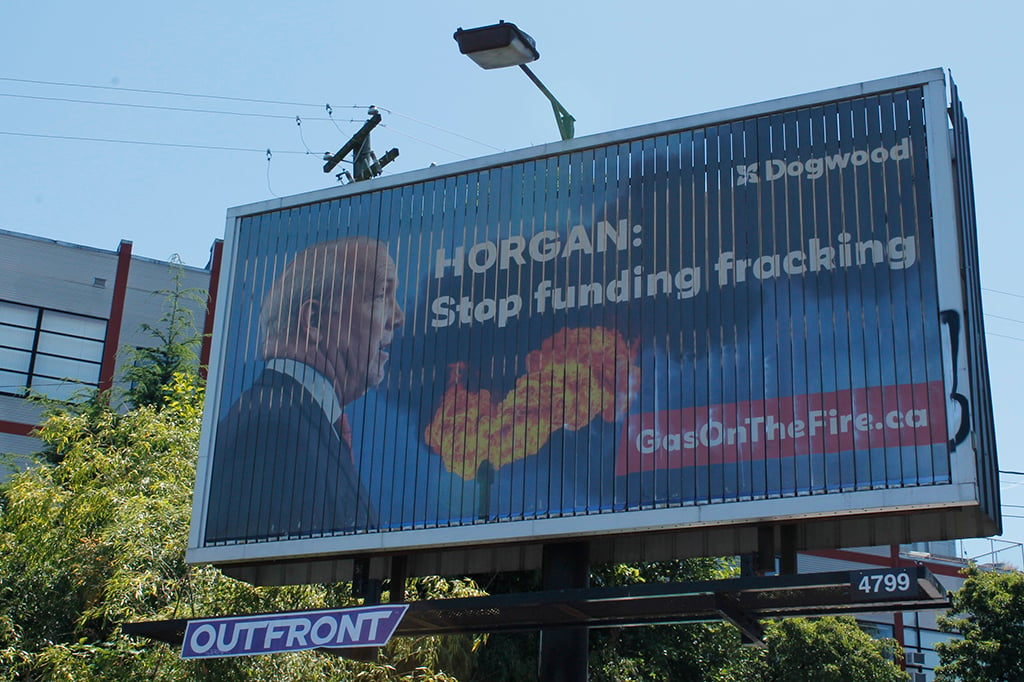In 2021, B.C. got a full serving of extreme weather events due to global warming. It’s clear the provincial government must speed up meaningful action to phase out domestic consumption and production of fossil fuels that are the principal cause of climate change.
The B.C. government’s current review of the royalty regime for oil and gas is an important opportunity to signal that the province is ready to take climate action seriously. Provincial energy policy remains heavily tilted towards encouraging extraction and production, including subsidies to industry through cheap BC Hydro rates, negligible charges for water use and lax oversight from the Oil and Gas Commission.
B.C.’s royalty system promotes oil and gas production through low royalty rates and subsidies in the form of “royalty credits” for fracking and other production activities. The single largest royalty credit is the Deep Well Credit, applied to fracking techniques that constitute 90 per cent of production. These credits almost wipe out any public revenue from the publicly owned resource that is extracted.
The government’s release of a What We Heard report from the public consultation phase of the royalty review is a welcome step forward. There was widespread agreement that the royalty regime subsidizes production, fails to provide an adequate public return and is contrary to B.C.’s climate and environmental goals.
But the key question is to whom the government will listen as they prepare policy changes to be announced this spring. Submissions from industry largely favoured token reforms while seeking to maintain current fossil fuel subsidies.
The danger is that the government becomes overly concerned about appeasing the oil and gas industry and rejects changes that would affect their “competitiveness” vis-a-vis other jurisdictions. It may even seek to align B.C.’s regime with Alberta’s in a way that would make it easier to boost production of fossil fuels.
Today’s imperative is to quickly wind down oil and gas production. The royalty review must break with the idea that more investment in the oil and gas industry is desirable and instead support a managed wind down of the industry, including a just transition for workers and returns to the public and local First Nations.
The government need not worry about the “competitiveness” of an industry whose product is causing incredible damage in the province and around the world. B.C. is a higher-cost jurisdiction located far from major markets. A policy that emphasizes the need to cut costs of production in relation to other jurisdictions would sacrifice public royalty revenues in order to attract investment and a few jobs.
B.C.’s dogged pursuit of LNG already takes us in the wrong direction, doubling down on oil and gas development. The LNG Canada Phase One terminal compromises B.C.’s climate plan and will become the province’s largest point-source emitter on the day it opens in 2025.
LNG Canada also inhibits B.C.’s ability to meet its sectoral target for oil and gas, which is a 33- to 38-per-cent reduction in greenhouse gas emissions by 2030. And it will be virtually impossible for B.C. to meet even its existing (and insufficient) 2040 and 2050 overall targets.
The climate emergency means the B.C. government must quickly and boldly reform the royalty regime.
First, royalty rates must be increased to reflect the climate, environmental and social impacts of this industry. Higher royalties are justified because of environmental and social costs of extraction, processing and transportation. Embedding a carbon fee at the wellhead to at least reflect the current B.C. carbon price would apply carbon pricing to exported oil and gas.
Second, subsidies should be eliminated and previously issued credits restricted. Outstanding credits held by oil and gas companies should be restricted by placing a cap on how much can be claimed annually or by ensuring a minimum net royalty is paid per unit extracted.
Third, Indigenous jurisdiction must be respected and royalty revenues shared. Any new royalty system must be developed in full partnership with Indigenous peoples whose territories have been impacted or polluted by the extraction, transport and processing of gas.
Fourth, water use by the fracking industry must be on the table. The sector pollutes billions of litres of water a year and pays almost nothing for it. This review should introduce stricter regulations to prevent pollution and drastically raise royalty rates for water use.
Our proposed reforms would mark a dramatic shift from subsidizing oil and gas production that is harming the global climate and is unjust for Indigenous peoples from whose land the oil and gas is extracted. By enacting them, B.C. could become a global leader in harmonizing its royalty regime with the urgent need for climate action. ![]()
Read more: Energy, BC Politics, Environment















Tyee Commenting Guidelines
Comments that violate guidelines risk being deleted, and violations may result in a temporary or permanent user ban. Maintain the spirit of good conversation to stay in the discussion.
*Please note The Tyee is not a forum for spreading misinformation about COVID-19, denying its existence or minimizing its risk to public health.
Do:
Do not: